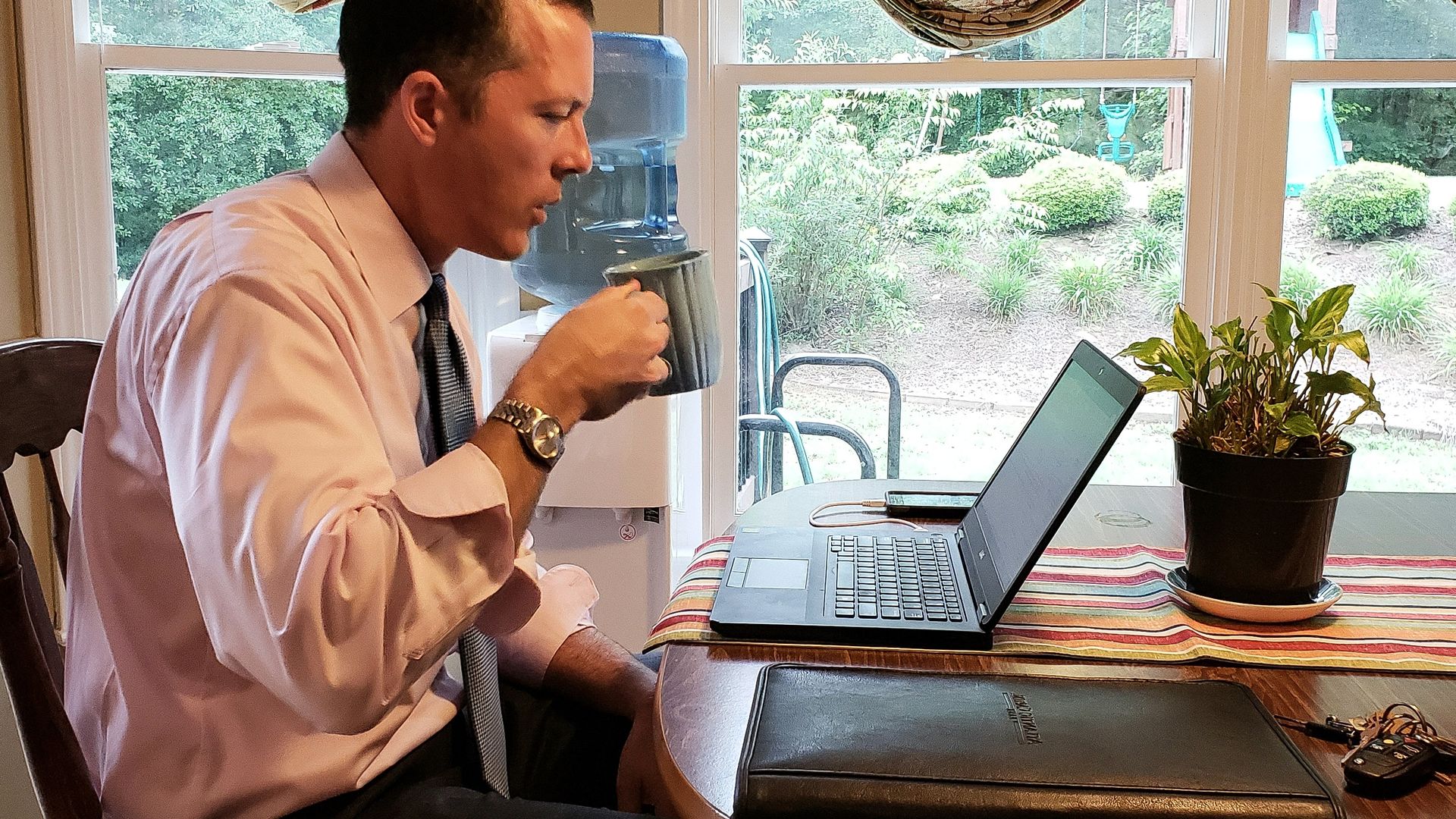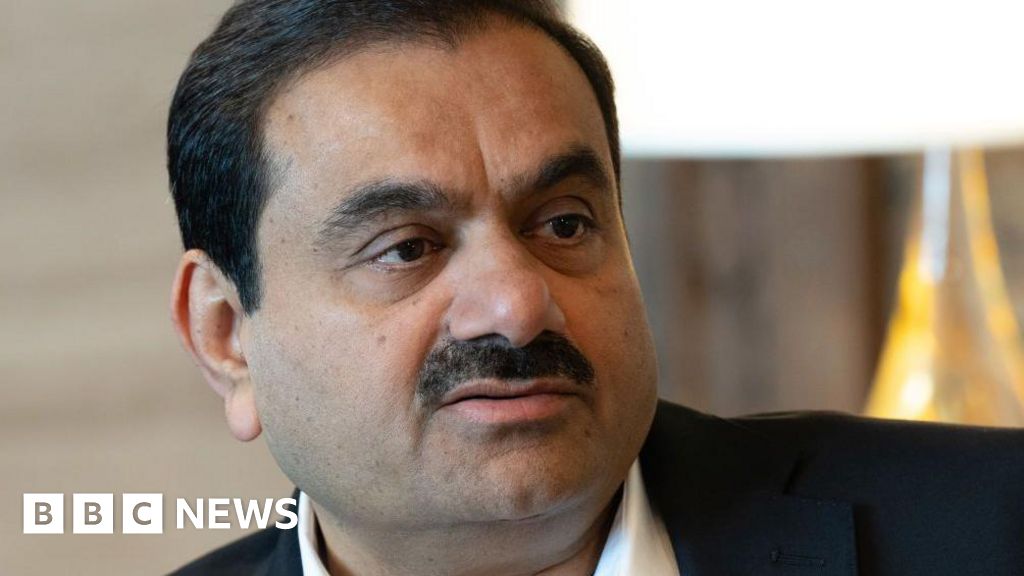Luntz: ‘We have lost empathy’: American business owners debate politics

Hello, I’m Dr. Frank Luntz, and welcome to straight arrow news. It’s fascinating to me how many people claim to speak for the economy, or to talk for business, but we rarely hear the voices of the people who run those businesses and hire those workers. Until now. We gathered together a group of business owners for a lively conversation about politics, democracy, civic engagement, and how business can survive and even thrive in this difficult political climate. It’s a conversation you will only hear on America speaks. So let’s get right to it. There was a definite divergence and how they view the health and vitality of our democracy.
And it’s significant. Let’s listen in. We’re about to do something that I think has never been done in the annals of presentations or focus groups, which is we’re about to do both at the same time.
We have more than 100. Let me take a look at this. We have more than 100 people who are watching us right now, who are potentially going to participate in this conversation. Let’s get right to it. American democracy. Give me in a single sentence. When I say the words American democracy, Michael from Georgia, what do you think, in a sense?
American democracy is the best form of self government on the planet Earth.
Alexia, American democracy in one sense,
freedom to kind of express yourself the way you feel. And thank Rob from Maryland, American democracy in a single sense, is in real trouble.
Dan, from California, American democracy in the sense,
the best form of government, the worst form of government, except for the all the others.
Alex from Indiana. How do you answer that question?
The greatest hope. But we’re in big, big trouble. Steve from New York, how do you answer that sentence?
American democracy
is in trouble because the center just does the the center is disappearing. Thank you from California, I am sure that American democracy is heading down a road of rebellion because of the extreme voices, the small extreme voices on either side.
Navajo County, Kentucky.
Democracy is working. It is ugly, and it is beautiful. But it is working
long from California.
American democracy I think is the bedrock of the American dream.
Live it for North Carolina.
American democracy to me is messy. And really, it’s interesting how it pulls things together eventually and works.
But serious problems at the moment, I think in terms of a lot of apathy.
And, Ron, you’re from California, I think, yes. How do you answer that question American democracy in a single sentence.
It’s eroded in its core principles to allow extreme partisans to rule the roost.
Okay, now, this is where the conversation happens. And I want to encourage you, any question, any answer any question, any response?
Put your thumb put your fist down towards your camera just like this.
And we’ll put you this churchy camera, put your thumb up like this.
Now vote is democracy working with democracy failing vote, and this is metal working failing?
Okay, that’s interesting, because we got some failings, we got some workings, this is not a positive response. Gone? What’s going on that cause you to give it the thumbs down?
I think that we were, I would say until recently on a very positive trajectory in our American democracy, in the sense that all citizens got the chance to fully participate. And I think that there are now some forces that are working to undermine that and to limit our ability to politically participate
in our political system. Okay, so I’m going to ask you,
who are what are those forces
Yeah, I think there are. So my personal opinion is I think that democracy
was a dream was an ideal. And I think we fully realized American democracy with the Voting Rights Act of 1965. Until then, a lot of Americans cannot vote cannot vote freely. And I think we’re seeing the erosion of voting rights, the
the ability of our checks and balances our political institutions is being compromised. I’m particularly thinking about, you know, the Supreme Court and some of the ethics challenges there, as well as what we’re seeing in terms of,
you know, political, political fundraising, and how big money has taken over a lot of our politics. When you look at democracy, is it succeeding? Is it failing? Or is it kind of neutral?
I put it neutral. Because, because, look, we’re having elections. And, and for the most part, they’re not being challenged and people are going and things are things are things are moving forward. The problem is the perception that people have of what’s going on, is getting worse and worse, but because all we’re seeing are the extremes. And so I think participation is, is getting lower, and the people who are winning in the primaries are more extreme. And so that’s who’s being, again, getting elected from these
from these in these districts. While it wasn’t the focus of this conversation, several business owners were eager to point out the similarities between events of 100 or even 200 years ago, that they were even worse than what we see today. Others spoke negatively about the media, and its role in addressing and in some cases, stoking the divisions in America. Both were hot topics. Once the conversation got going, everyone had a complaint they wanted to voice and we wanted to hear it. Okay, by show of hands, who believes that extremism is one of the fundamental challenges to American democracy? Raise your hands if you agree with that statement?
Okay, almost everybody who disagrees with that statement.
Okay, for those whose problem, tell me why, if I can add to that, though, extremism is a problem, but it’s not new. We’ve had anarchists in the 1920s that were, you know, setting off bombs on Wall Street. So extremism has existed from the very beginning, and what the Patriots did back in 1776, you would use the word terrorist to describe the actions that they took to overthrow
the British. So it’s a problem, but it’s not new. No, but I think I think the problem is that that is new, but that we don’t know who’s doing it anymore. Is my fear. So so so you see what’s going on on college campuses, anti semitism, who’s driving that? I’m not sure we know, you watch videos on Tiktok. And people say, who’s driving that? We don’t know. And there’s all kinds of nefarious people things that people say, Oh, it’s coming from Russia, or from China, or from wherever. But do we know who are these people? Or is it really us? Or is it somebody else? I’ll just throw in there that I think a huge problem that I see is just the extremes of the only sounds that we hear. And there’s a huge majority in the center that is silent. And it’s frustrating, I think I think most Americans
really agree with each other on 85% of the issues out there. But you never hear those voices. You know, and I think there’s a lot of media bias that is highlighting the extremes. And the center just isn’t that interesting to talk about. So it’s, I think that’s one of the big problems. It’s leading this massive division that you mentioned, Frank,
what Clifford just said, I would add to it that the incentive structures in media, the way that the open Internet was designed was to reward the loudest voice and not the most responsible voice, the fairness doctrine has gone. There’s no accountability and trust is eroding in all institutions. And while it’s more profitable to be an extremist, with the loudest voice, you used to be relegated to the town square, you could say what you want, potentially, but now you can be rich and famous for doing so. Until we change the incentive structure. We’re going to keep rewarding the voices that we shouldn’t hear and they’re going to feel like they’re a larger part of the country than they actually are. I think there’s a hopelessness emotionally with people that they feel that
getting punched in the face when when you’re hearing the extremists and laws are being passed to strip away rights, whether they’re voting rights or women’s rights. It feels almost hopeless. In some instances, the fact that these small state supreme courts and other things can take the actions that they take and obvious
See, I have one viewpoint.
But on the other side, too, I think there’s there’s just a hopelessness, because we’re being bombarded day in and day out, if you even open your news app with negative news and extremism, and I just think emotionally, I haven’t seen it like this before. There’s always been a America’s Great, we’ll get through it, it can do attitude. And I feel some of that is waning, which I feel I think is very conservative. Who thinks the media is a problem here? Raise your hands if the media is a problem. So I want to leave problem or the problem. A pro. Okay.
Okay, Michael, and then Steve, why do you focus on the media as a problem in democracy? I think I can’t I think it was Cliff who said it, the box has moved. So I lost track of who was talking. But I think it’s the unintended consequence of capitalism. And I am a very fervent capitalist, the unintended consequence of capitalism, and a free press is what we have now, which I think if you said it, which is that, you know, and, Dan, you were saying it, which is, you know, it’s not news to say, hey, 85% of Americans agree on abortion, or 85% of Americans agree on immigration, right? If I put Americans agree on gun rights, like that doesn’t sell newspapers, or get eyeballs or get people to tune into the news, we’ll get the news or the extremes. So I see. And now, of course, in the age of the internet, and everything we’ve talked about, all those years are just amplified, an echo chamber Louder, louder, and louder and louder and louder and louder. And that’s what you know, is a problem. Yeah, I mean, I think it really it, it really goes back to when, you know, there was we moved from the three or four networks, right? All the way down to having to MSNBC, CNBC, all that all that kind of all those, all those different issues. And that was, that was the start. But I think the real, the real nail in the coffin, to a certain extent is if you really go back to when social media really exploded, I think it’s a little bit of what everybody has said in the sense that now, now, there’s no consequence to saying anything that you want to anything that you want to say, in any form, you don’t have to say it to somebody’s face, you can just throw it up there. And that. And that then continues to perpetuate. And like everybody said, that gets likes that gets advertising dollars that gets all of those, all of those different, all of those different pieces, and the rest of us from the center just kind of let it wash over because it doesn’t necessarily impact our everyday life. So is there any answer to this? We have a First Amendment, and I’m going to start to show you some of the materials. Is there any answer that we can address that might actually have a positive impact on the media, which would in course, have a positive impact on democracy, I can tell you something I’m doing in my business right now to address this in advertising, we co developed something called the Civility score that measures the concentration of ad hominem attack per hour in media, we use this for brands who want to find brand safety and suitability in where they place ads. I believe that if you can make it more profitable to make your point without having to vilify the person that you disagree with, we can do business we can disagree respectfully, and have conversation and move a conversation forward. Without some metric for brands to do that. They they either avoid news entirely and direct response marketers promote the loudest voices that are the least responsible. But brands need to step in and they need to have something other than no news dictates on their media buys. Okay, that’s awesome, because that’s specific. Anyone else got a specific idea? Or a very specific idea? And I’m going to keep harping on this all night. Long, is historical context. Ben Franklin made his money, printing misinformation and disinformation from the presses that came over from London. And there’s a great podcast called Ben Franklin’s world, Episode 375, January 9 That talks all about that. But because we lose this historical context, we think that what we’re in is totally unprecedented and totally anew. And it’s not.
Okay, and I’m going to show you right can when trying to make this fullscreen and make it easier for you where we are right now. And I always have to apologize for this because it’s always a hassle to get it to work the way I wish it to.
Okay, first, never and I don’t mean to chat, I do mean a challenge.
Never in American history. Has three quarters of Americans describe themselves as mad as hell and not going to take it
anymore?
How do you possibly get people to compromise or to work together? Or to address some of these challenges? When this level of anger, a majority of every single subgroup? Geographically attitudinally. And demographically, a majority of every group describes himself as mad as hell. Next, and this is the one that I really want you to respond to.
Do you consider yourself invested in America success? And America’s future? Two thirds of Americans say yes.
But then when they ask them, Is America invested in your success?
And your future? It’s only 31%.
This is a fundamental, this is not a problem.
This is not dangerous. This is the definition of crisis. How much money do we spend on COVID funding? How much money is the federal government spend every year? How big is our our trilled multi trillion dollar debt.
And yet the public does not believe that their own country is invested in their future. And one more before I’m gonna go back to this discussion 83%. So with all due respect to you going back in history, 83% of those people alive, four out of five, think that this is the worst in their lifetime. And in fact, 65 year olds, it’s 92%.
This is why this session is happening. So my first question, I’m gonna take this off, so we can see each other again.
You see the numbers, you see where the country is at? Is this a crisis? So Alex, do we is we don’t have a crisis is not even a problem. You agree with that? No, we have a we have a big problem.
I’m 37 years old. No, not the oldest. But in my lifetime, I’ve watched the State of the Union every single year, and just exhibit a look at the State of the Union. Look at the decorum of our congressmen and women on both sides of the aisle. I think if we’re looking towards the solution, every 10 years, the problem gets worse. Districts can read gerrymandered and re gerrymander. So you get more and more extremists in Congress, who has the highest per capita GDP in the world. United States is number eight, the only countries ahead of us are tiny little countries in Scandinavia, named me a better system than the system we have now the fact that we have outrage on MSNBC and Fox, I don’t really give a shit. I don’t watch those shows. And so tell me a system that works better. And I’ll tell you we have a crisis. As far as I’m concerned, we have the best, best country best system of government in the world, show me a better one. Give me Give me data that supports that we have a there’s a better system in the world. I would disagree in that just because we’re not experiencing the problems on the surface doesn’t mean that they’re not going on at the foundation. Give me a fact give me a fact that underscores that Edelman Trust Barometer, look at the trust. In fact, that’s an opinion. That’s an opinion, that’s a series of people’s opinions. Give me a data point, a fundamental data point that says our country is economically on the decline in any way shape. That wasn’t the question. The question was, are we in crisis and the crisis is more about what’s to come than what we’re experiencing today. Today, we’re getting anecdotal feedback people, we all have issues with our family who are on one of the political extremes, suddenly, people can’t sit down to Thanksgiving dinner without having a conflict that didn’t used to happen at the same rates. We’re experiencing that with people, not people broke into our day. January 6, is a pretty good example of new things happening where the populace is responding in ways that we haven’t tolerated before. We’ve had a lot of instances of crisis, we’ve had a lot of conflict, we did have a civil war. But the rate of change right now is different. The stakes are higher AI is an existential threat. China’s an existential threat. I believe nuclear proliferation is an existential threat, we have threats that are growing faster than we can manage them. And the problem is, if we can’t get people to get together and do business to solve these problems, collectively, an existential threat just needs an opportunity. And I think it’s not about what we’re experiencing today. These are symptoms, but the root is bad. And I’m very deeply concerned that we’re not going to have the opportunity to walk it back. By the time we really start to accept that when it comes to talking about the actual problems. It seems like we never get kind of down to that right. Like I think, you know, policing is a very serious conversation, we should be able to have the state of our economy, which was just brought up here. It’s very serious conversation we should be able to have and so often we get, we talk about how we talk to each other and not about the actual problems that real America
Kids are facing. And I think that’s reflected in our political system.
Steve from New York,
I think the assumption that nobody gives anybody the benefit of the doubt, and the more there is there is just literally, no, no empathy, like we have lost, we have lost some sad some sort of, of empathy and pride, like used to be like you were proud to be American. And I think that like what you sowed is like, the seeds that is out there that people just are not there’s a group of people that are do not have the pride in America, that I think our that our recent history has demonstrated, and I think is that continues to erode, that will continue continue to be a huge problem. And any reaction to this from anybody on this? Zoom?
I mean, I think I would just say that the the biggest issue I think we have facing us in the democracy is that lack of trust in institutions that have forever been kind of stalwart, you know, I’ve even heard people now questioning the unemployment numbers and saying, oh, there’s political maneuvering to make them look better. You know, so all these institutions that we used to have just faith in that were just world renowned.
Just tons and tons of distrust around it. So there’s stresses and there are challenges, but I think we’re dealing with them. And to be very clear, I think Trump is a rendus threat. I am genuinely scared what he could do. That doesn’t mean that we aren’t I think rallying is a people in dealing with these issues, which I think we are all discussing partisan politics and the presidential campaign wasn’t the purpose of this session is still came up quite often. Let’s hear why.
Okay, I’m surprised by Neville, you’re surprised me on everything. I gotta tell you something. I’m reasonably good at my job. In bringing out conversation being able to predict people, I would have thought you were a total Trumper based on what you said, Neville, so when you just slammed him.
Your point of view is much closer to a Trump supporter point of view. And yet you are hostile to him. I want to be candid with you. I’m shocked. I would never vote I would put a gun through a gun to my head before I would vote for Trump. I abhor him. He is a legitimate danger to this country. We are dealing with it. Okay. That’s the thing that I have faith in for the ability to deal with it. I’ll even get into the specifics of as the Secret Service is talking with the correction facility and you’re like, how do you put a president in jail? Okay, which is just crazy. absolutely absurd. That’s an example of two institutions working. It would be a dysfunctional institution. If the Secret Service was like, No, you can’t put the president in jail. We won’t allow that. That’s a fundamental breakdown, but that’s not happening. Okay. I need him. I want you to see this video and tell me if this is the proper exchange between politicians.
He feels political when he viewed his political information and a political loser for him. It’s not about him. It’s not about me.
I’d be a winner. Not really. Hi.
Leigh Lincoln, Lincoln, Riley, an innocent young woman who was killed by an illegal? That’s right. But how many have 1000s of people being killed by illegals? To her parents, I say my heart goes out to you having lost children myself. I understand. But look, if we change the dynamic at the border, people pay people people pay the smugglers 8000 bucks to get across the border. Because they know if they get by if they get by and that into the country, it’s six to eight years before they have a hearing.
And it’s worth the taking the chance at 8000. But, but if it’s only six months, six weeks, the idea is it’s highly unlikely that people will pay that money and GM all that way knowing that they’ll be able to be kicked out quickly.
Okay, you saw the whole clip. I want you to see everything. You have Congress yelling at the president. Is that appropriate in a State of the Union address? Is that an example of the strength of democracy to get a chance to challenge the president? Is that an example of incivility and rudeness on the city? I don’t know what you’re going to say. How many of you would say that that is democracy a success? What you just saw it that is a pause.
is a thing for democracy that one positive? It’s both two positive three positive. Who says that’s a negative that that’s an example that democracy is in trouble? Three, four.
So three, positive four negative I want the negatives why? So Alex, tell me why. And Michael, tell me why that’s a negative and then to you tell me why that’s a positive?
Who doesn’t have a bully pulpit if not a congressperson? Why does that need to be the moment where we’re trying to listen to the the constitutionally mandated state of our Union from a president? Could Congresswoman not do that at another time?
Michael, I think it’s a false choice. Actually, Frank, I think it’s both an example of the strength of our democracy that you can say something like that in a form like that, and I get thrown in jail the next day for the rest of your life. And I think it’s completely inappropriate and disrespectful. So I think it’s actually both.
Okay, who thinks it’s a good example of Democracy at Work? Watch Prime Minister questions over in Parliament. I mean, oh, my God, it’s like it’s, it’s a test of your mettle to be able to respond on your feet. When somebody questions you and challenges. You mean, that’s the cradle of democracy is the Magna Carta, they do it all the time. For Europe.
No, I just I love living in a country where, where we can do that type of stuff, you know, my half of my family, my mom is from Mexico. And in Mexico, you can’t do that you cannot challenge the president, you can’t do anything like that. So I think we were lucky to live in a country where you can do that, and, and you don’t end up in jail. And I think it’s great. I think it’s it shows a fully functioning democracy.
I’m sorry, I just think the whole I thought that whole clip was gross. I felt like not only the back and forth between the President and the Congress, people, but the fact that that he’s holding up a coin and blaming illegals. To me, that gets to the heart of also what is dysfunctional about our democracy, it was identity politics, and a cheap play at emotional sentiment, not really based, like, on strong policy, even if we look at our immigration policy, what he was proposing isn’t necessarily beneficial, either and calling illegal illegal immigrants murderers and framing it in that way. I just thought it was cheap. I thought it was cheap. I didn’t think it elevated the conversation in any way. And I didn’t think that the interruption added to it. But I thought the whole thing to me was kind of disturbing. I mean, kind of comparing this to Prime Minister’s questions or some, you know, debate society is I mean, come on. This is this is he’s given the State of the Union, and she is screaming from the rafters like a lunatic. And he’s responding. This was not a discussion or a tit for tat, it was the wrong playsport. And that’s the point of what I think we’ve lost some Rules of Civility, she can do it, she could have stood up, she could be the one to get the response. She just joined the Capitol screamed her life that she could have had an interview on Fox or wherever she wanted to. Instead, she chose that moment, to be firm, to try to embarrass him at the moment and to raise her profile. But what why? Why are we there? What I wanted to understand and what viewers should know, is that while this is owners do not believe they should be directly involved in promoting democracy. They do believe that there is an important role for the business community in encouraging civic engagement. Why? Let’s listen.
Okay, so let me ask you guys, what is the role of business?
Every one of you is a business owner, or a business leader, all you
what should be your answer could be nothing at all.
What role should business played knowing that you have far more credibility than the average member of Congress who have far more credibility than the average bureaucrat? That the public sees that you can and should engage? What do you think is as busy? Okay, let’s do this by show of hands first. Who thinks the business community of all who thinks the business community should be directly engaged and involved in making democracy work better? Raise your hands if you think the business community should be doing it?
12345678 Interviewer Who says the business community should stay out of politics? Raise your hands? One.
Two, and I add a caveat to my yes vote though. The problem is it shouldn’t because it’s it serves profits. And the purpose of a corporation is to grow profits, the Business Roundtable and all the big executives got together and said, Oh, no, we’re here to serve stakeholders. And I don’t actually believe that. So I don’t think the should is because it’s a moral obligation. I think it’s in all of our best interests.
Okay, so, John, I’m gonna go to you in a moment, I want to know from two or three of you why the business community shouldn’t be involved.
I think I mean, I’ll just say when when there’s regulatory frameworks that are introduced that
dramatically
tie the hands of real estate owners and developers, for example, that’s where you get involved, because it will come to a point where business simply won’t be profitable, job creation will stop, I mean, you can take it down to the,
you know, an extreme example. But there has to be a balanced out and a push and pull there between the best interests of a worker and the best interests of a business owner, otherwise, nobody’s going to be able to afford to pay people for jobs, and society will dramatically suffer. That’s why I think that it’s very, very important.
The business community to be involved, and also to set the stage and the tone of civil discourse within an organization so that people have practice,
having conversations about issues that perhaps they disagree with in a setting that is encouraging civility,
to just flex that muscle within an organization with others. Why Vaughn, you’re nodding your head? Yes. Tell me why. I agree. I think we should encourage participation, I was just thinking about the fact that, you know, I run a small business and like it or not, the policies, both within the business world and outside of the business world, that affect my employees affect my business, Inflation affects my business, whether I like it or not, cost of living affects my business, housing, affects my business, all these things affect who I can hire, how productive my employees are, and therefore how profitable My company is. So it’s not like traditional business regulation. But you know, I feel like it’s important for me to at least be interested and invested in politics, because these political decisions, affect my employees and my employees affect my business. Let’s go from California to New York. Alexia, what should the role of business be in, in promoting effective, efficient democracy?
Um, I think the business should like kind of encourage people to participate, but I don’t think it should overly influence it. I mean, I think, you know, you kind of coming from a position of strength as a business owner, and to sort of, you know, kind of like install your views is not really like how I view it, I think you should just kind of, you know, encourage participation, civic engagement.
What is the role of should be the role of the business community in promoting civic engagement? I’d like to get five of you to tell me that.
I think I think I think we incur I think we encourage it, we give the day off on election day. We encourage volunteering, like, there are certain things that as a community, as a country, I think we have an obligation to, to model and to support
somebody else on civic engagement and business.
Somebody, I think it’s absolutely critical to encourage participation, not only in voting, but also getting involved in local community, whether it’s, you know, you show up at your neighborhood association, or it’s something on the city level, including, by the way volunteering. So what I’ve done in the past is encouraged volunteering by giving a certain amount of volunteer days a year. And then also, we, we gave a certain amount of money to each person to spend, as they wished in any charitable way that they wanted to, which told us a lot about what those people what our employees cared about. So and we celebrated those things. So those are three ways. Specifically, we tried to look for we tried to look for the intersection between what’s good for our business and our shareholders, and what’s good for the community. And one example I can give you is because our business was located near military base, was we call them Harvard heroes, giving paid internships to veterans, returning from our recent wars, without respect to whether they had the training or not, you know, and we found that like those employees, many of them would be the best that we’ve ever hired to sort of good for our business, in engagement in the community. So we tried to look for that intersection. It was sort of hard to find on a regular everyday basis, but where we could find it, we went after it hard
to more of you. What’s the language? I think the problem was
Saving democracy. And it’s so overwhelming. I mean, like, what do I do? I mean, I can vote. I guess I can give some money to somebody and stuff like this or run for office. But it’s so overwhelming. But civic engagement, can be volunteer can be board work. There’s just there’s, it’s my own hometown. So it’s more direct, it’s more immediate, I could feel it, I can impact it, I can see it. And I’m hyper involved in my community. So I know viscerally the impact that can be made and saved. Democracy is just too big. Where do you begin?
And one more
duty or responsibility. That’s the word I keep playing back in my head. My father emigrated to the country when he was 19 years old. I might be different because of that. But I think of it as a responsibility and a duty to be involved in mechanically. As a citizen. The message was quite clear. Businesses do acknowledge that they have an important role to play in addressing and promoting civic engagement. Hopefully, someone is paying attention. That’s all the time that we have for this week. Until next time, I’m Dr. Frank Luntz. Thank you for listening. And thank you for watching.
Related
Related
Painesville American Legion post plans July 20 family fun day
American Legion Post 336 in Painesville is planning a July 20 family fun day at its 60 Chester St. post with remembrance ceremonies, food, giveaways, live music
Turkish-American business meeting highlights CANiK’s role in defense cooperation
During a meeting hosted by the Turkish American Business Council (TAIK) and the American Turkish Business Development Council (ATBR) in Washington, Turkish
Growth in core business lines produces improved profits for BNY
This is a developing story. Please check back here for updates. BNY Mellon grew its core custody and wealth management businesses while tamping down operating













